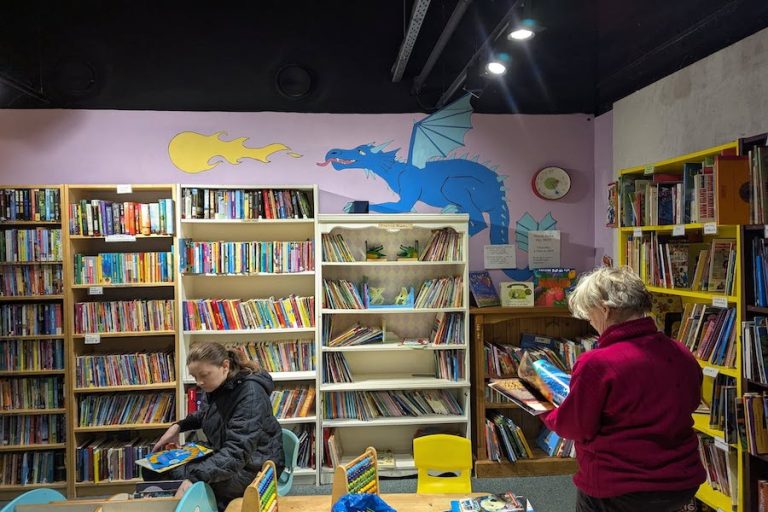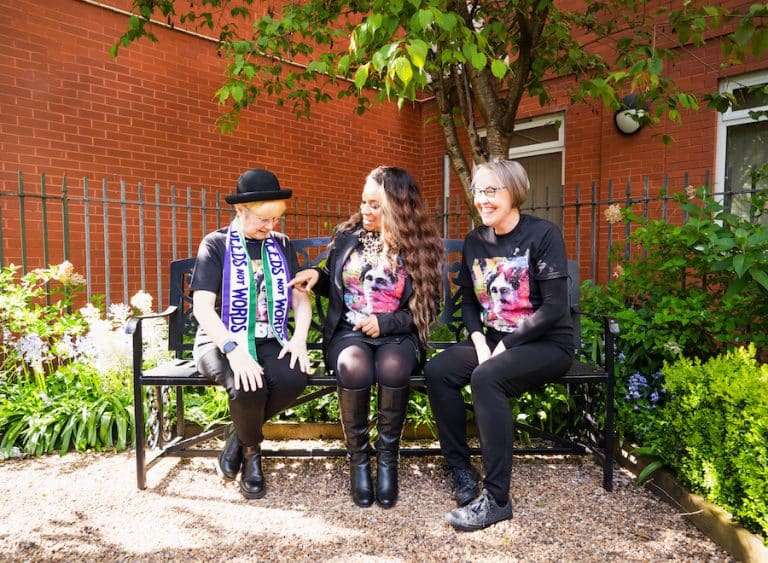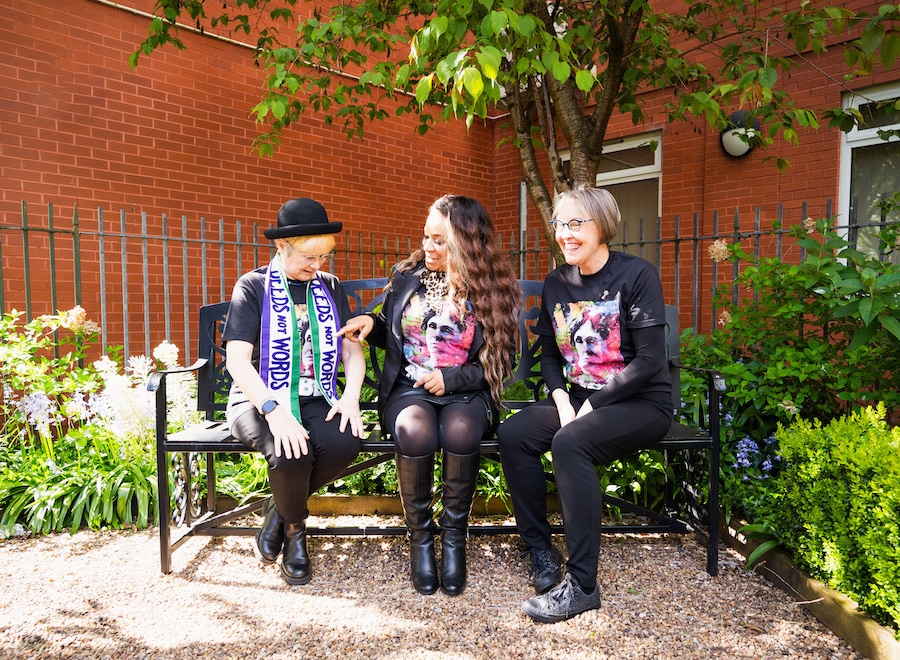Now you can relive queer eighties Manchester in new alternative Christmas play
- Written by Glenn Meads
- Last updated 1 year ago
- City of Salford, Nightlife, Theatre

Sour Milk was first staged at the Greater Manchester Fringe Festival.
It returns next month and offers an alternative to the traditional Christmas shows.
We caught up with actor and writer Jonathan Mitchell to find out more about this queer story and how it came about.
What inspired you to write Sour Milk?
The idea originated a few years ago while I was at university. Having seen parallels drawn between the COVID-19 Pandemic and the HIV/AIDS Epidemic, I was interested in researching further into the topic. The research really inspired me, and I ended up writing a 15-minute piece of digital theatre due to the restrictions of the lockdowns.
I feel like in recent years we’ve seen revivals and adaptations of plays (and new TV series) that speak of the 1980’s and HIV/AIDS epidemic, think The Normal Heart, Angels in America and how popular It’s A Sin was.
But it felt to me as though there was a lack of representation for the North of England. This seemed odd to, especially with Manchester’s rich and historical queer scene. It was something that really interested me and I wondered how that could play out.
It grew from there really, after leaving university Red Brick asked me to adapt the piece for the stage, into what then became Sour Milk which we originally performed at the Greater Manchester Fringe Festival in 2021.
What made you want to bring it back?
I suppose there was a sense of unfinished business. When we first staged the play, it was in a much smaller venue for only a couple of shows, we felt there was more to explore in the world we built.
The reception to the play at the time was really positive, and we wanted to see if we could go further with it. We felt there was more to the story that could be brought forward.
The addition of a new character, who had previously only been mentioned, breathes new life into the play. We wanted to upset the status quo and give the original characters more room to grow and develop.
It’s been just over two years since we first staged Sour Milk and it just felt like this was the right time.
Even with funding pressures, Manchester remains a place where new writing does get a look in, on stage. Why do you think this is?
I think this is a credit to the local Fringe theatre community more than anything. Yes, we have some amazing bigger theatre spaces in the city, with the likes of the Royal Exchange, HOME and now Factory.
But it’s the smaller venues where New Writing really gets its chance to shine. Spaces like The Kings, 53two, Hope Mill and The Edge provide crucial spaces where writing gets transformed from page to stage for the first time. It’s not only a real credit to these spaces, but to the hunger of Manchester audiences who are always looking for new flavours and new stories.
Plays featuring queer characters used to focus on misery. Do you think we have moved on from that type of representation in productions you see?
I do think we have moved on from that. I think in the past, plays featuring queer characters focused on misery because it was seen, by a vast majority of people, as something embedded within the queer experience – Misery. I feel there are times when this representation is appropriate, the HIV/AIDS epidemic had a huge effect on the Arts, especially theatre. The focus on misery may have been a response to issues the Arts were facing at the time as a byproduct to the epidemic. I think there has been a pushback against this from queer writers and creatives in recent years because there is so much about the queer experience that is not miserable, and that needs to be reflected and celebrated within queer productions. I’d be lying if I said Sour Milk doesn’t explore some of those themes, but I also feel like the world of the play is littered with joy and wit.
With so many Christmas productions out in December, what makes this play stand out?
Oddly, I think many of those themes and conventions that people associate with Christmas ring true in our show. It’s a story about friendship, and holding those you love close. It’s a tale about being grateful for what you have, and finding joy in your home comforts. I like to think it’s a story that can take you on a journey. Hopefully Sour Milk can make audiences feel in the same way many Christmas productions do, but without the fake snow!
How would you sell Sour Milk to someone who knows nothing about it? Why should they go along?
I think Sour Milk has something for everyone. Yes, it’s a play set during the HIV/AIDS epidemic, and the story explores these themes. But it’s primarily a play about friendship, love, disappointment, loss and the intricacies of relationships, which is something everyone can relate to. Maybe for people who lived through the 80’s it will give them a sense of nostalgia and take them back to that time. for younger audiences it may be completely new material for them to connect with. I like to think it’s something that’s filled with catharsis, it’ll make people laugh and might even make some people cry.
Sour Milk is at the King’s Arms from 5th – 9th December and can be booked here.
- This article was last updated 1 year ago.
- It was first published on 28 November 2023 and is subject to be updated from time to time. Please refresh or return to see the latest version.
Did we miss something? Let us know: [email protected]
Want to be the first to receive all the latest news stories, what’s on and events from the heart of Manchester? Sign up here.
Manchester is a successful city, but many people suffer. I Love Manchester helps raise awareness and funds to help improve the lives and prospects of people across Greater Manchester – and we can’t do it without your help. So please support us with what you can so we can continue to spread the love. Thank you in advance!
An email you’ll love. Subscribe to our newsletter to get the latest news stories delivered direct to your inbox.
Got a story worth sharing?
What’s the story? We are all ears when it comes to positive news and inspiring stories. You can send story ideas to [email protected]
While we can’t guarantee to publish everything, we will always consider any enquiry or idea that promotes:
- Independent new openings
- Human interest
- Not-for-profit organisations
- Community Interest Companies (CiCs) and projects
- Charities and charitable initiatives
- Affordability and offers saving people over 20%
For anything else, don’t hesitate to get in touch with us about advertorials (from £350+VAT) and advertising opportunities: [email protected]

Mayors and veterans unite to drive ambulances of hope to Ukraine

The bookshop where everything is free and everyone gets a warm welcome

How I AM has been changing lives for neurodivergent people for over 50 years

Review: RNCM Session Orchestra with Tim Burgess and Helen O’Hara is ‘a joyful evening of classics’


















